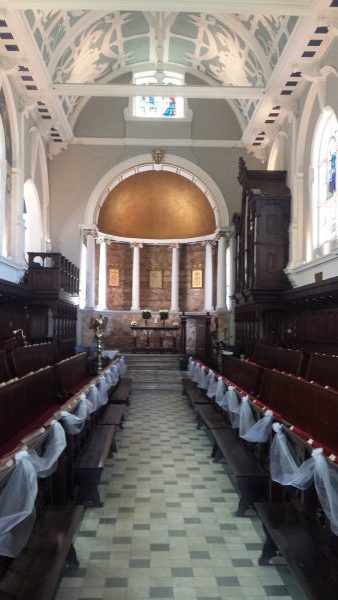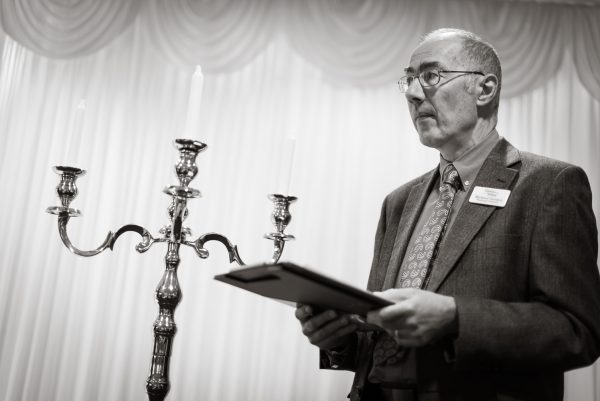
by Michael | Jun 7, 2022 | Blog
Returning to day-to-day affairs seems a little mundane, after the weekend we’ve just had! It’s been even harder for me, as I celebrated my birthday right in the middle of the long weekend. Anyway, I hope you enjoyed the Jubilee (and my birthday!).
A few weeks ago (I’m afraid I got distracted, and put it off!) The Daily Telegraph published an interesting article. Apparently, marriages in places of worship now (as of 2019) account for less than a fifth of all ceremonies. This is the first time such a drop has been recorded – and actually represents a record low.
Religious ceremonies accounted for 18.7% of opposite-sex marriages, and same-sex a mere 0.7%.
One reason suggested was that more couples are choosing to live together, rather than marry, but that doesn’t really explain the drop in the religious option. I wonder if it is more connected with the drop in active church-going.
Incidentally, I wonder if this will get worse before it recovers. Faced with all the uncertainty around Covid and social distancing, people prefer the greater flexibility of a civil celebrant to the rigidity of the Church.
I am not going to knock religious ceremonies (especially as I chose to marry in a full religious ceremony myself!). Obviously, they appeal to those religiously inclined, and can offer a personal, meaningful, spiritual and beautiful ceremony in a special setting.
Drawbacks could be perceived to be that they are rather one-size-fits-all. The basic liturgy is followed, and will be the same – or similar – for each couple. There is little flexibility in readings, texts, ritual etc., whereas a celebrant-led service can provide all these.
There can be complications, such as a mixed-marriage, which is no problem for a civil celebrant, but which may present difficulties for the priest. Moreover, a full-blown religious service can be a bit much for people who are only lukewarm towards religion, as it is.
The Church can be a lovely setting, but a civil venue can be chosen that is equally, or even more, spectacular and atmospheric.
So each to their own, of course. There is plenty to be said for religious weddings, but they are not everybody’s cup of tea. A personalised celebrant-led ceremony may well tick all the boxes.
To find out how, a chat with me may be all that you need!

by Michael | Jan 20, 2020 | Blog
You’re getting married? Brilliant! Have you decided who will officiate? Will it be a priest (or equivalent), a registrar or a civil celebrant? Did you even realise that you have a choice?!
[This post is designed for English or Welsh couples, although laws are set to change in the not-too-distant future. Separate rules apply to Scotland and Ireland.]
Religion
If you are
marrying in an Anglican church, this is as simple as it gets. You will be able
to combine religious and legal in one ceremony. The same applies for Jewish and
Quaker weddings.
Otherwise,
you will have to arrange a trip to the register office and to the church before
you can be declared married.
Registrars
The registrars come at the other end of the spectrum to priests, although both services are pretty much standardised. The registrars are not permitted even to mention God or religion. What they do, however, is to pronounce the legal words. Without these being uttered and witnessed, no marriage is valid.
You need to make an appointment with the registrars and go to their office with two witnesses. Or the registrars may come to the venue of your choice (currently, there are restrictions, such as a minimum requirement of four solid walls). Be aware that this will cost you substantially more.
The registrars will offer you a minimum of choice as to the service structure. And their presentation skills can vary wildly!
Celebrants
Until the law changes, civil celebrants cannot marry people legally. They can bless them, conduct a part-religious (or even wholly-religious) service, hand-fast them, get them to sign a marriage certificate afterwards, but none of this makes the marriage legal.
So what
normally happens in these cases is that the couple marries first (at the register
office, unless the registrars come out to their venue). This can be done in a
private room or in front of guests.
When the registrars have left, the civil celebrant can stand up and publicly conduct the personalised ceremony the couple have been dreaming of. It may be religious, or partly so; it may be (partly) humorous; it may contain ritual; active participation may be invited; favourite readings or music may be chosen; it may well be unique to the couple.
At the end, the celebrant may declare the couple legally married (as long as the registrar service has been completed!).
The point is that, by using a celebrant, you have free choice as to the tone and content of your ceremony on your big day.
If you want
any further clarification on this issue, please feel free to contact me.


